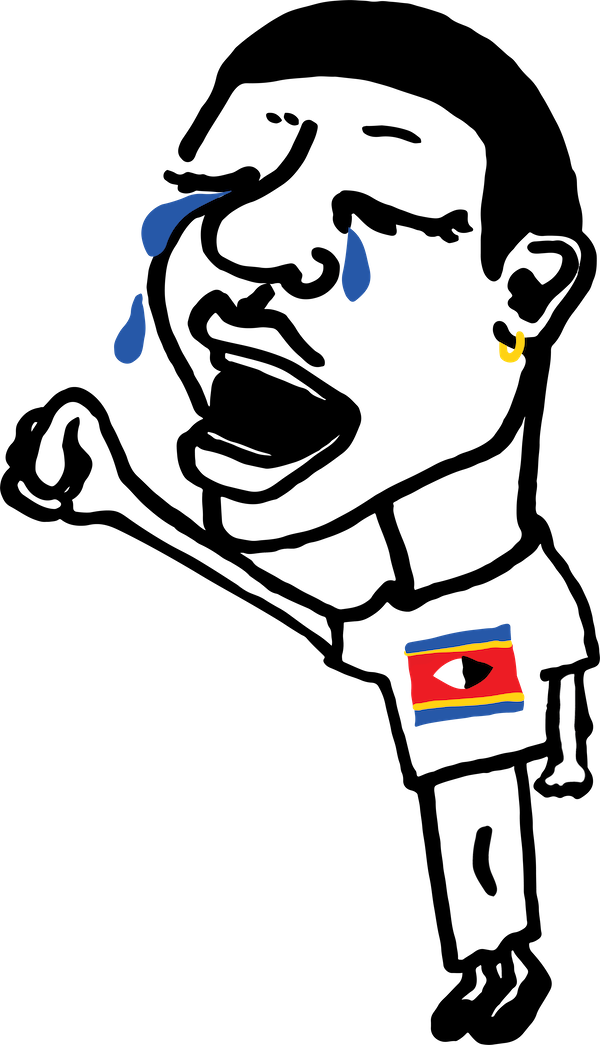At least 29 killed, hundreds wounded in the nation’s fight against monarchy
Since June 2021, the southern African nation of Eswatini has been fighting for democracy and economic justice while King Mswati III deploys lethal force against protesters. Having been in power since 1986, the king refuses to step down as the country experiences one of the most violent unrests in its history.
Officially known as Swaziland until 2018, the citizens of Africa’s last absolute monarchy are rallying for major government reforms. These include a democratic selection process of Eswatini’s prime minister and the release of two members of Parliament, Mduduzi Bacede Mabuza and Mthandeni Dube, who were detained when the protests began.
The Swazi police have fatally shot over 29 demonstrators this year, seized personal belongings, and brutally interrogated journalists in an attempt to silence the pro-democratic movement, according to Swazi journalist Cebelihle Mbuyisa. The protesters also responded with violence, looting grocery stores and committing arson in the country’s two largest cities.
Tracey Dlamini, a 19-year-old university student in the capital Mbabane, described the gravity of the unrest to The Concordian, having witnessed these events unfold first-hand.
“I was really shocked, I’ve never seen anything like this in Swaziland in my entire life,” she explained. “The police were shooting the whole night, using tear gas, throwing protesters in vans like they were animals. I couldn’t even sleep hearing those gunshots. […] They shot even those who didn’t carry a weapon: small kids, mothers, fathers — everyone. All because we want one man to step down.”
On Oct. 21, the kingdom shut down internet access nationwide amid the new wave of protests, while also restricting movement under the current curfew from 9 p.m. to 4 a.m. Mswati III continues to rule with an iron grip, attempting to monopolize Eswatini’s economy for the royalty.
“King Mswati is the law himself, he can’t be arrested. People are dying of hunger, some regions have no water, […] and if you start a business and it’s successful, then the king will take it from you. He sees you as competition if you try to become rich,” Dlamini added.
In 2019, the Swazi monarch purchased 19 luxury Rolls-Royce cars for his 15 wives, which amounted to $30 million. While Mswati III continues his lavish lifestyle, 63 per cent of Swazis live under the poverty line with an alarming 41 percent of the population being unemployed.
The king himself referred to the protests as “satanic,” saying they are turning the country backwards. Still, the manifestations show no signs of slowing down, notably among high school and university students, while the path towards democracy remains complex for Eswatini.
“We’re fighting for a democracy that has been deemed futile in so many African countries, like the neighbouring Lesotho,” said Georgia*, a Concordia student who grew up in Swaziland. “We need a system for ourselves which encompasses both the current system and a somewhat democratic one, and it’s intangible right now since emotions are high.”
The student added that Eswatini’s humanitarian crises have often been overlooked by the United Nations and the West, causing the landlocked country of 1.2 million people to deal with rampant poverty on its own.
“We need external forces to help, we need more awareness from the western world. They are the only ones who can actually bring democracy to reality in a country such as ours,” said Georgia.
Earlier in June, Canada expressed its commitment to strengthen democratic institutions throughout the world at the G7 Summit in Cornwall, England. However, the Trudeau government has yet to address Eswatini’s ongoing violence or provide support for the fellow Commonwealth member.
*To protect the subject’s identity, we are using their preferred pseudonym.
Graphic by Lily Cowper




